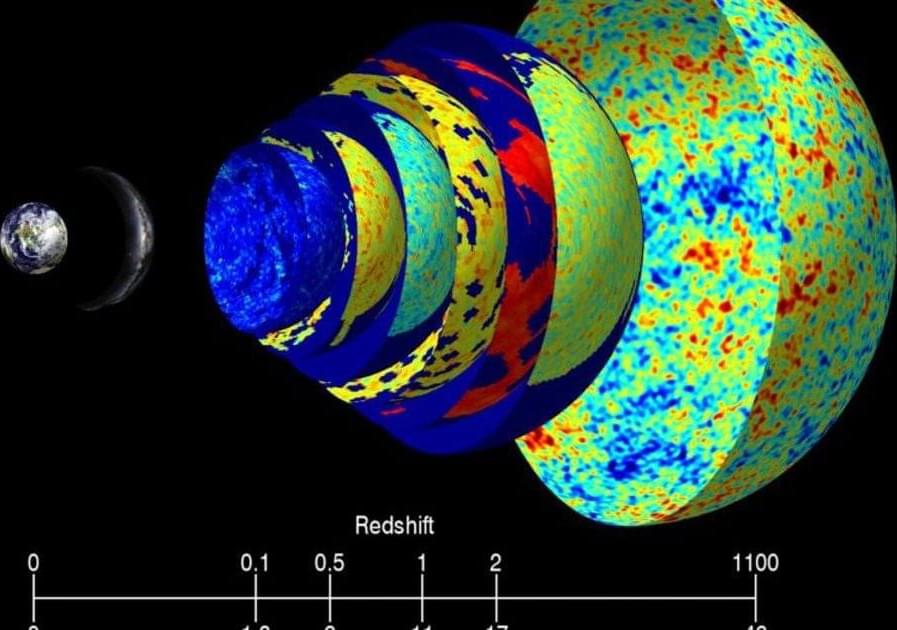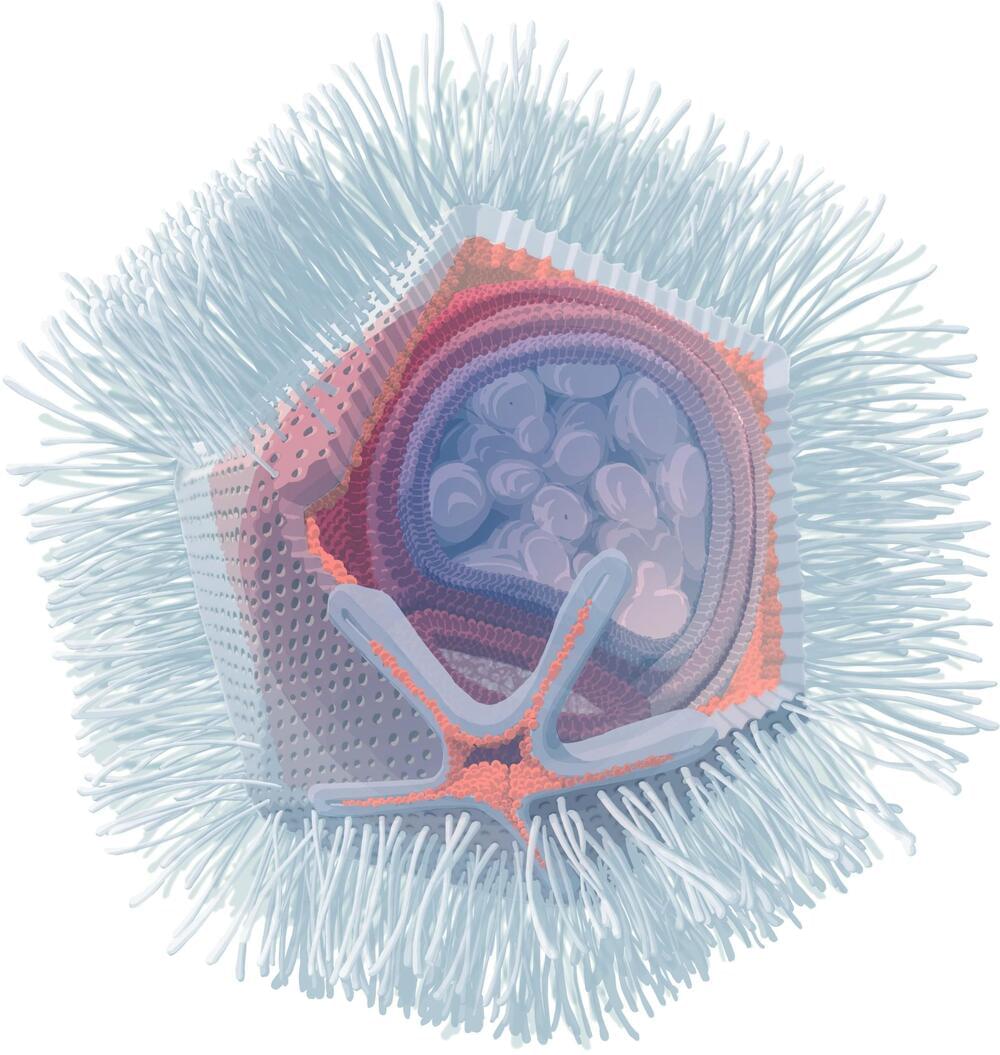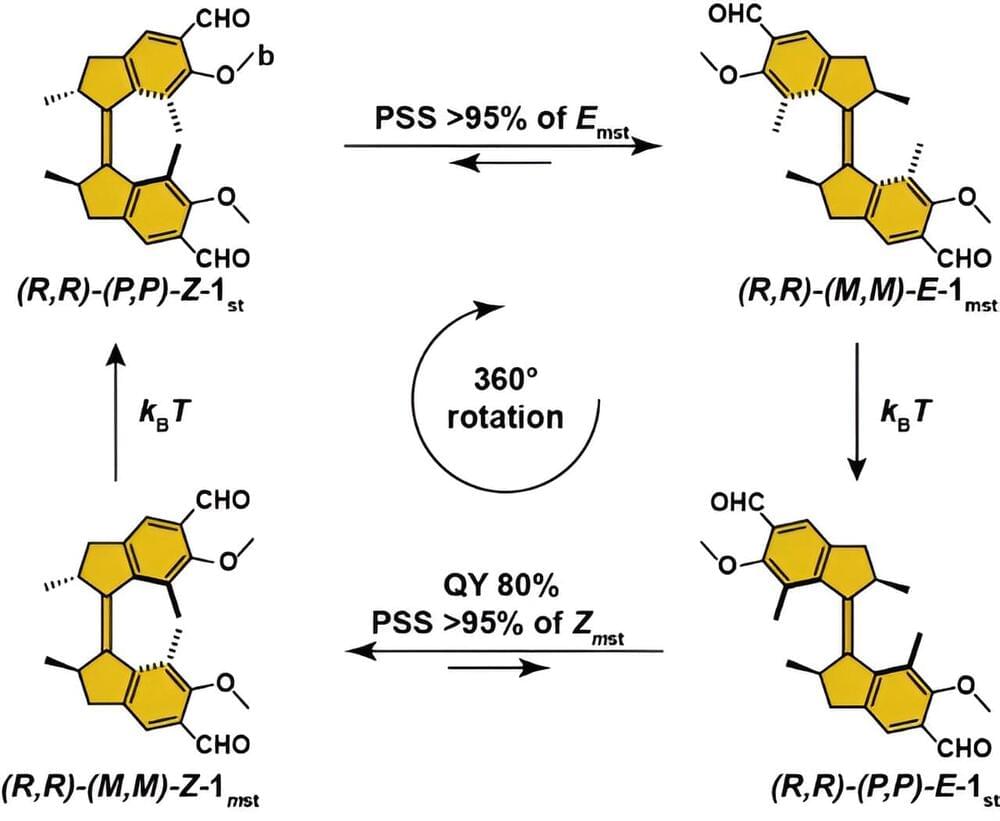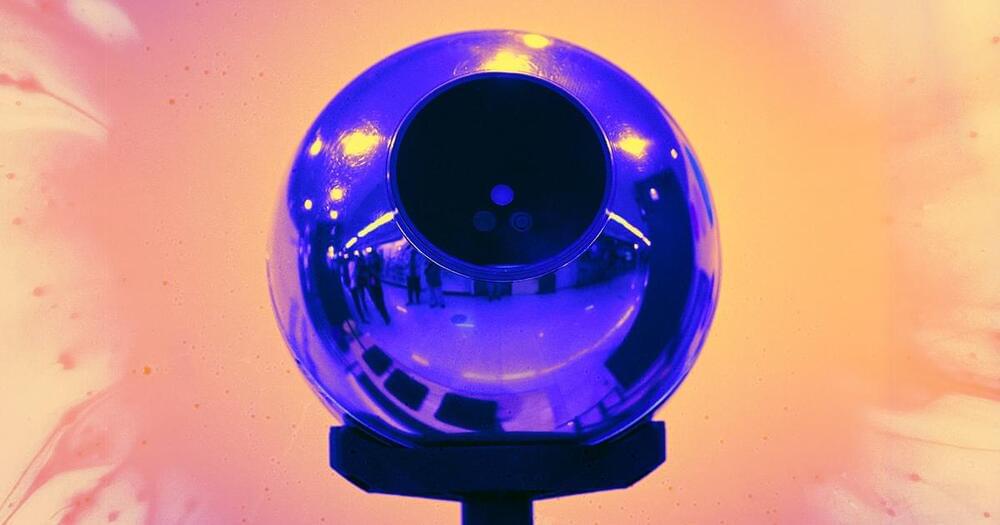In the 20th century, many options abounded as to our cosmic origins. Today, only the Big Bang survives, thanks to this critical evidence.




The single-celled organism Naegleria fowleri ranks among the deadliest human parasites. Matthias Horn and Patrick Arthofer of the University of Vienna’s Center for Microbiology and Environmental Systems Science, along with other researchers, have identified viruses that target this dangerous organism.
Named Naegleriavirus, these belong to the giant viruses, a group known for their unusually large particles and complex genomes. The team details their findings in the prestigious journal, Nature Communications.
Naegleri species are single-celled amoebae, found globally in water bodies. Notably, one species, Naegleria fowleri, thrives in warm waters above 30°C and causes primary amoebic meningoencephalitis (PAM), a rare but almost invariably fatal brain infection. A research team led by Patrick Arthofer and Matthias Horn from the University of Vienna’s Center for Microbiology and Environmental Systems Science (CeMESS) has now isolated giant viruses that infect various Naegleria species.

Light-driven molecular motors were first developed nearly 25 years ago at the University of Groningen, the Netherlands. This resulted in a shared Nobel Prize for Chemistry for Professor Ben Feringa in 2016. However, making these motors do actual work proved to be a challenge. A new paper from the Feringa lab, published in Nature Chemistry on 26 April, describes a combination of improvements that brings real-life applications closer.
First author Jinyu Sheng, now a postdoctoral researcher at the Institute of Science and Technology Austria (ISTA), adapted a “first generation” light-driven molecular motor during his Ph.D. studies in the Feringa laboratory. His main focus was to increase the efficiency of the motor molecule. “It is very fast, but only 2% of the photons that the molecule absorbs drive the rotary movement.”
This poor efficiency can get in the way of real-life applications. “Besides, increased efficiency would give us better control of the motion,” adds Sheng. The rotary motion of Feringa’s molecular motor takes place in four steps: two of them are photochemical, while two are temperature-driven. The latter are unidirectional, but the photochemical steps cause an isomerization of the molecule that is usually reversible.


Eyeball-scanning orbs are, apparently, not a dime a dozen — and now, a Sam Altman-backed crypto startup is running out of them.
As Semafor reports, the Altman-backed Worldcoin crypto startup, which uses bespoke metallic orbs to scan one’s iris and verify their identity, is running low on the spherical devices after giving out somewhere between 300 and 500 of them.
This news, as the site notes, has been confirmed by Alex Blania, the CEO of the Tools for Humanity startup that acts as Worldcoin’s parent firm.

Researchers from the University of Portsmouth’s Institute of Cosmology and Gravitation (ICG) have helped to detect a remarkable gravitational-wave signal, which could hold the key to solving a cosmic mystery.
The discovery is from the latest set of results announced by the LIGO-Virgo-KAGRA collaboration, which comprises more than 1,600 scientists from around the world, including members of the ICG, that seeks to detect gravitational waves and use them for exploration of fundamentals of science.
In May 2023, shortly after the start of the fourth LIGO-Virgo-KAGRA observing run, the LIGO Livingston detector in Louisiana, U.S., observed a gravitational-wave signal from the collision of what is most likely a neutron star with a compact object that is 2.5 to 4.5 times the mass of our sun.

The new technology, which was created at the University of Turku and developed by the company CardioSignal, uses a smartphone to analyse heart movement and detect heart failure. The study involved five organisations from Finland and the United States.
Heart failure is a condition affecting tens of millions of people worldwide, in which the heart is unable to perform its normal function of pumping blood to the body.
It is a serious condition that develops as a result of a number of cardiovascular diseases and its symptoms may require repeated hospitalisation.

Researchers developed a 3D printer that can automatically determine the printing parameters of an unknown material. This could help engineers use emerging renewable or recycled materials that have fluctuating properties, which makes them difficult to print with.
While 3D printing has exploded in popularity, many of the plastic materials these printers use to create objects cannot be easily recycled. While new sustainable materials are emerging for use in 3D printing, they remain difficult to adopt because 3D printer settings need to be adjusted for each material, a process generally done by hand.
To print a new material from scratch, one must typically set up to 100 parameters in software that controls how the printer will extrude the material as it fabricates an object. Commonly used materials, like mass-manufactured polymers, have established sets of parameters that were perfected through tedious, trial-and-error processes.

Pacemakers are medical devices that make sure that someone’s heart beats the way it should. If the heart rhythm is off, the pacemaker delivers a surge of electricity to bring the heart back into rhythm. The pacemaker takes effort into account and delivers faster pulses when needed. For example, when you’re exercising. For these electric pulses, the pacemaker needs a capacitor to rapidly charge and discharge. This provides a high enough electric charge to reset the heart.
Researcher Minh Duc Nguyen and his colleagues worked on a new design strategy for these capacitors to improve their energy storage, decrease the amount of energy lost every time it is charged or discharged, and increase the number of times they can reliably charge and discharge.
“It needs to keep up with your heartbeat, so it should be able to charge and discharge up to billions of times. Otherwise, you’ll have to replace the pacemaker every few months”, explains Nguyen.